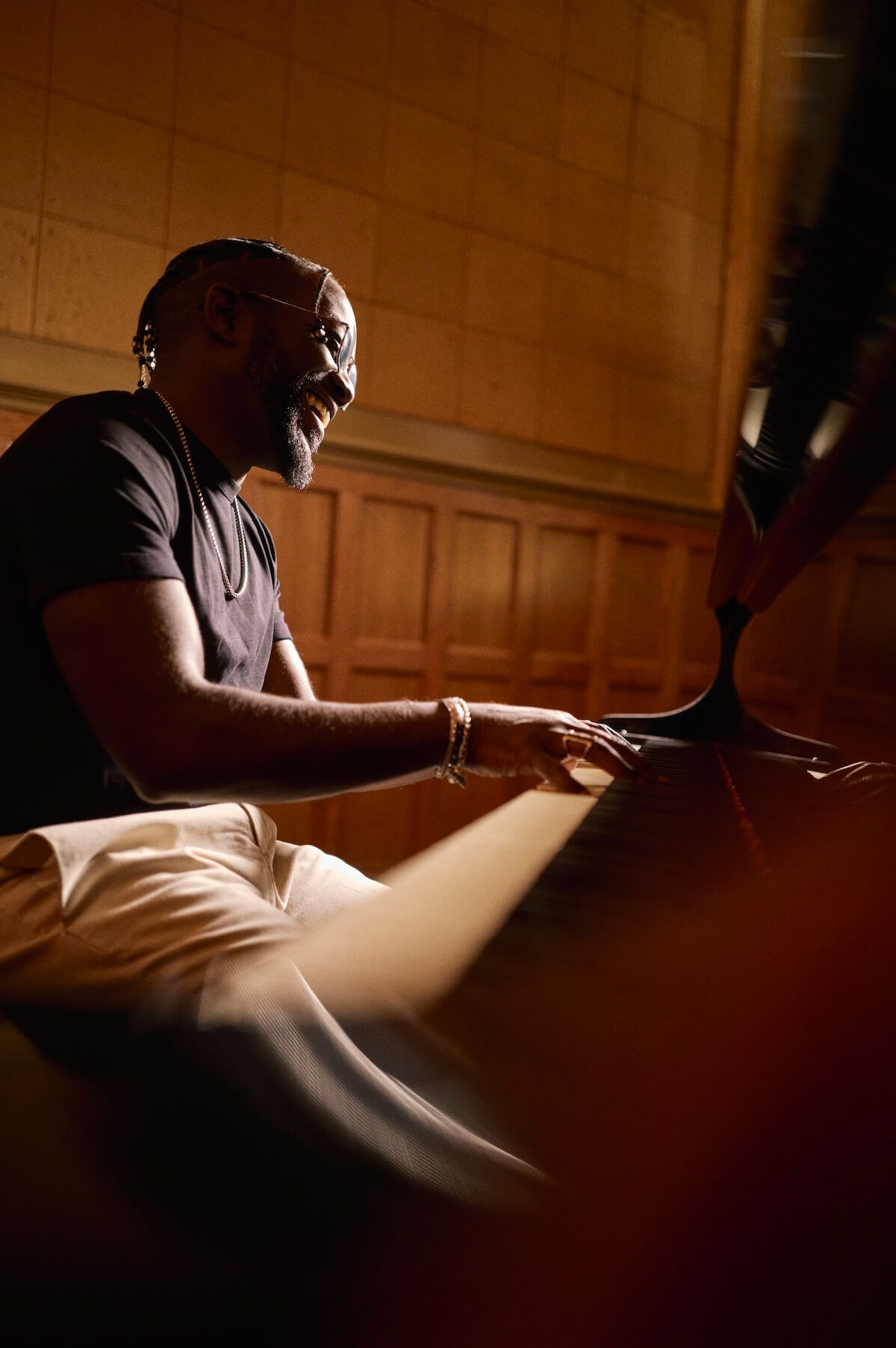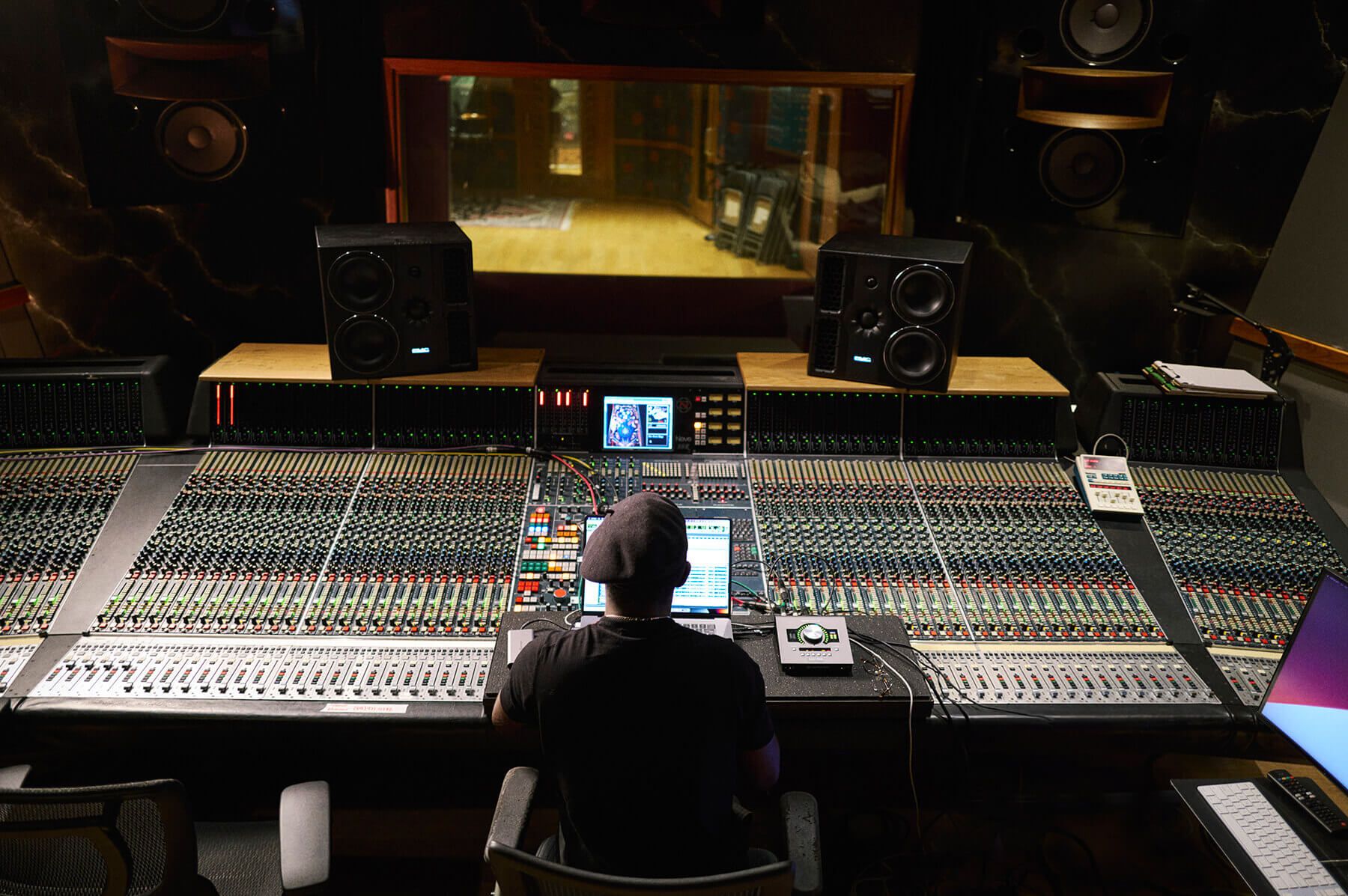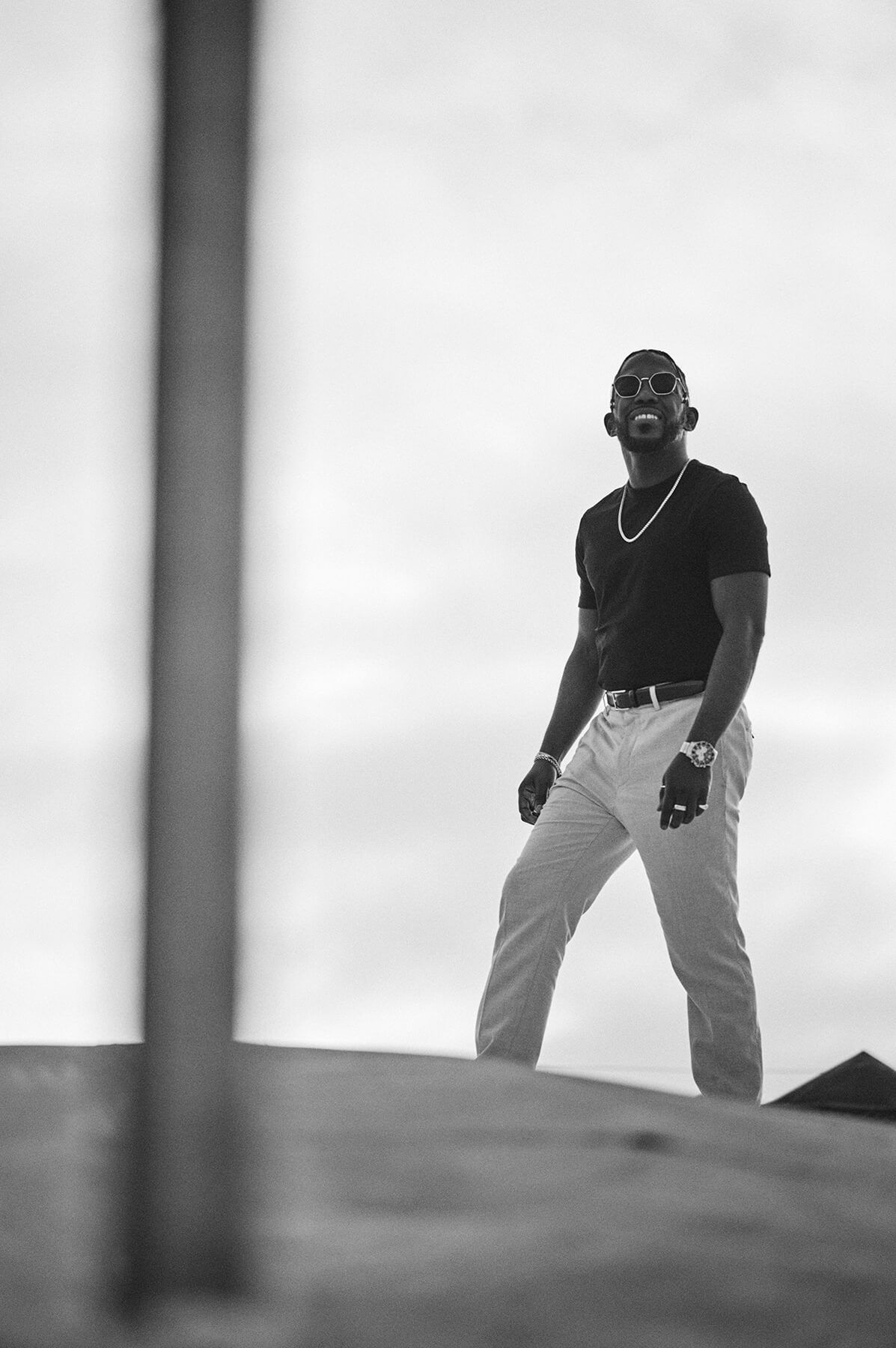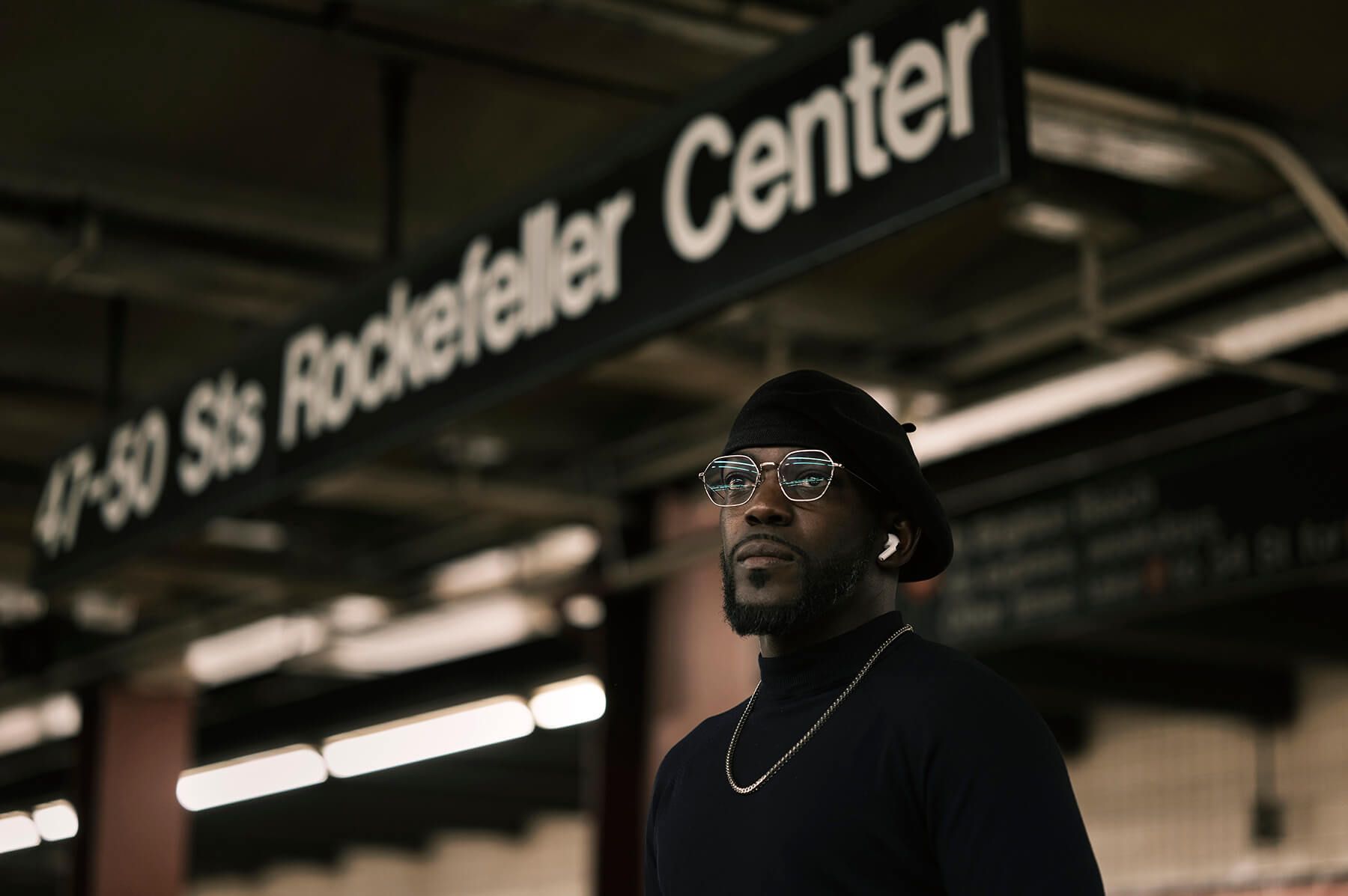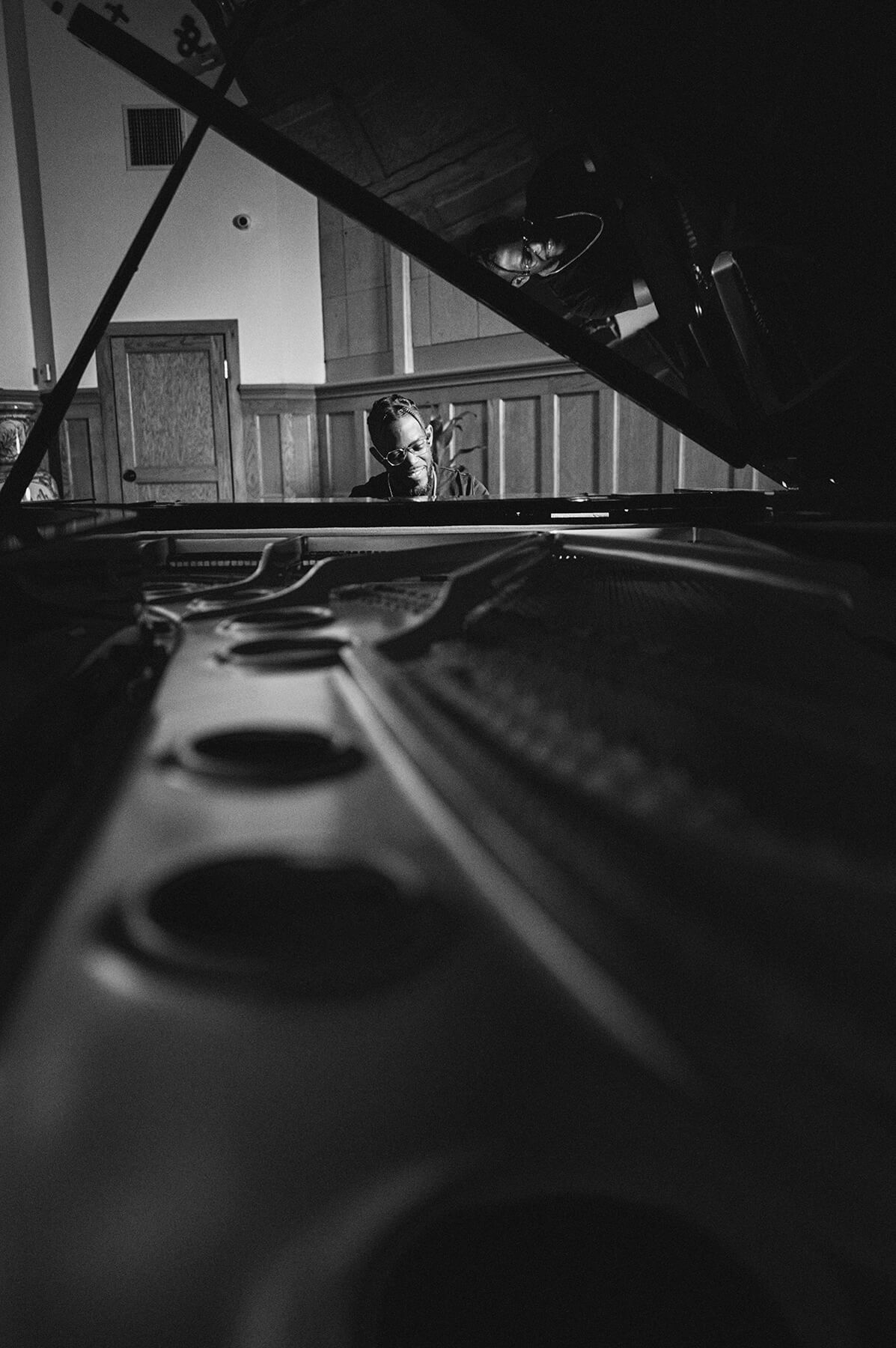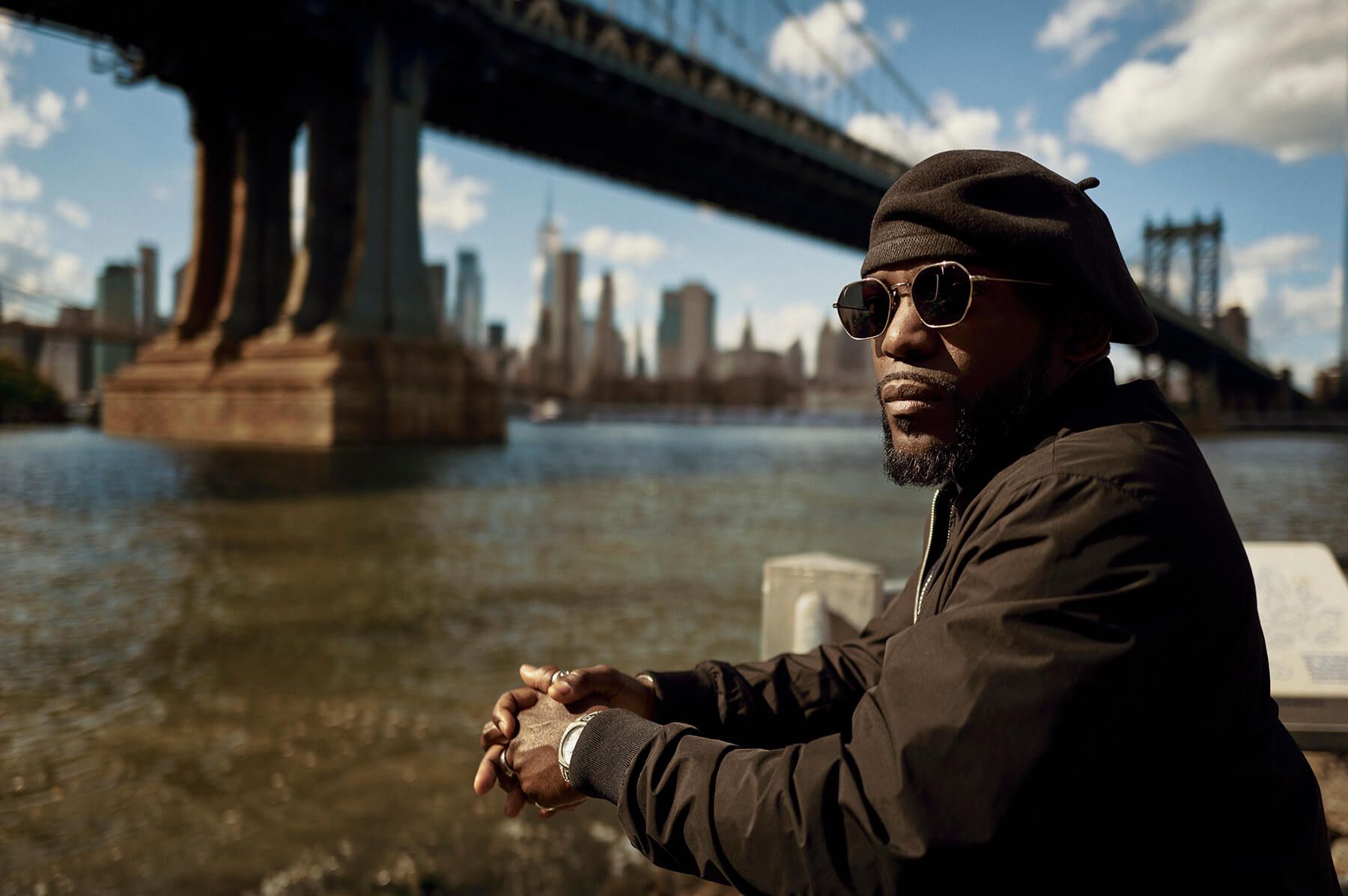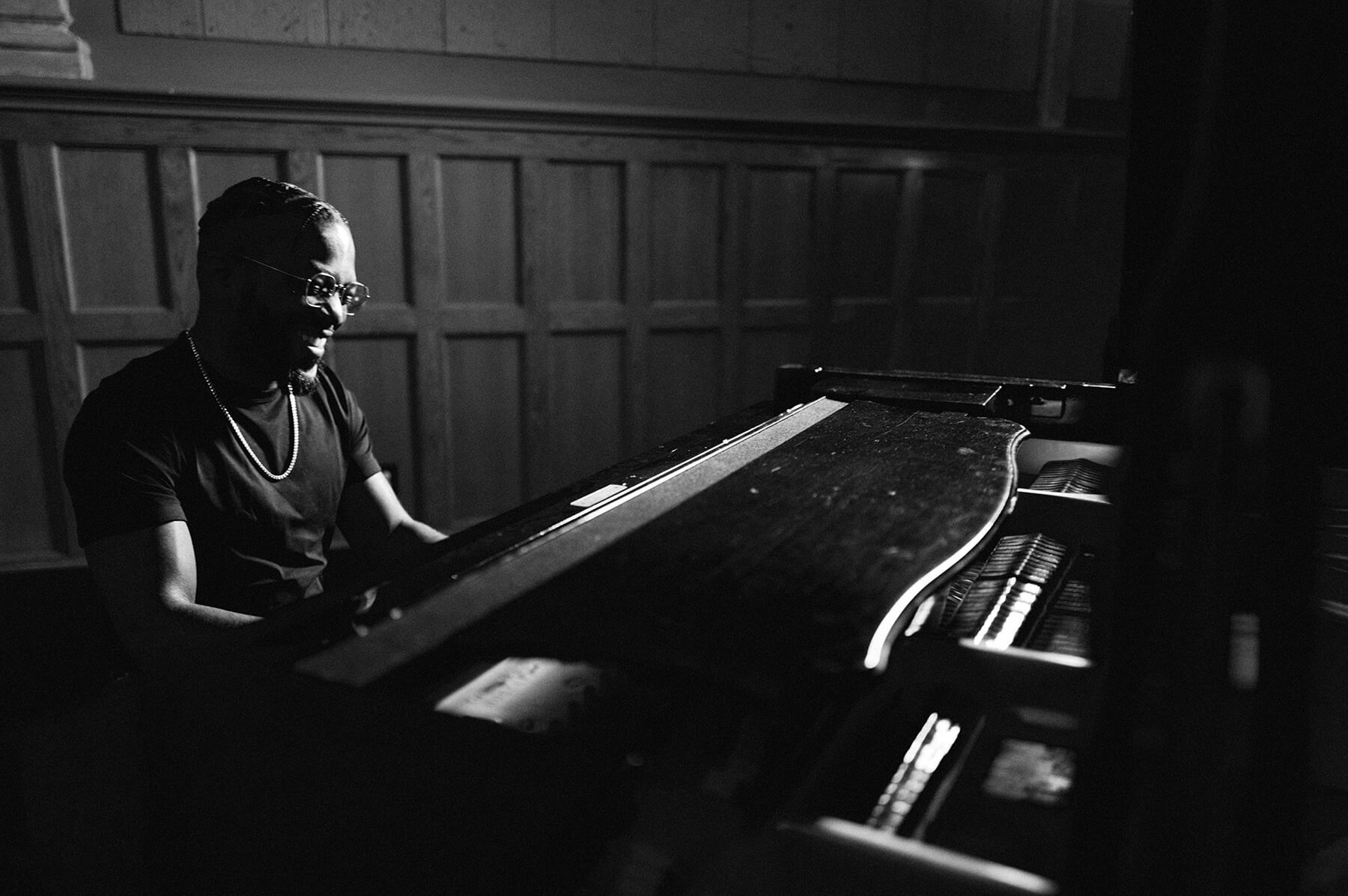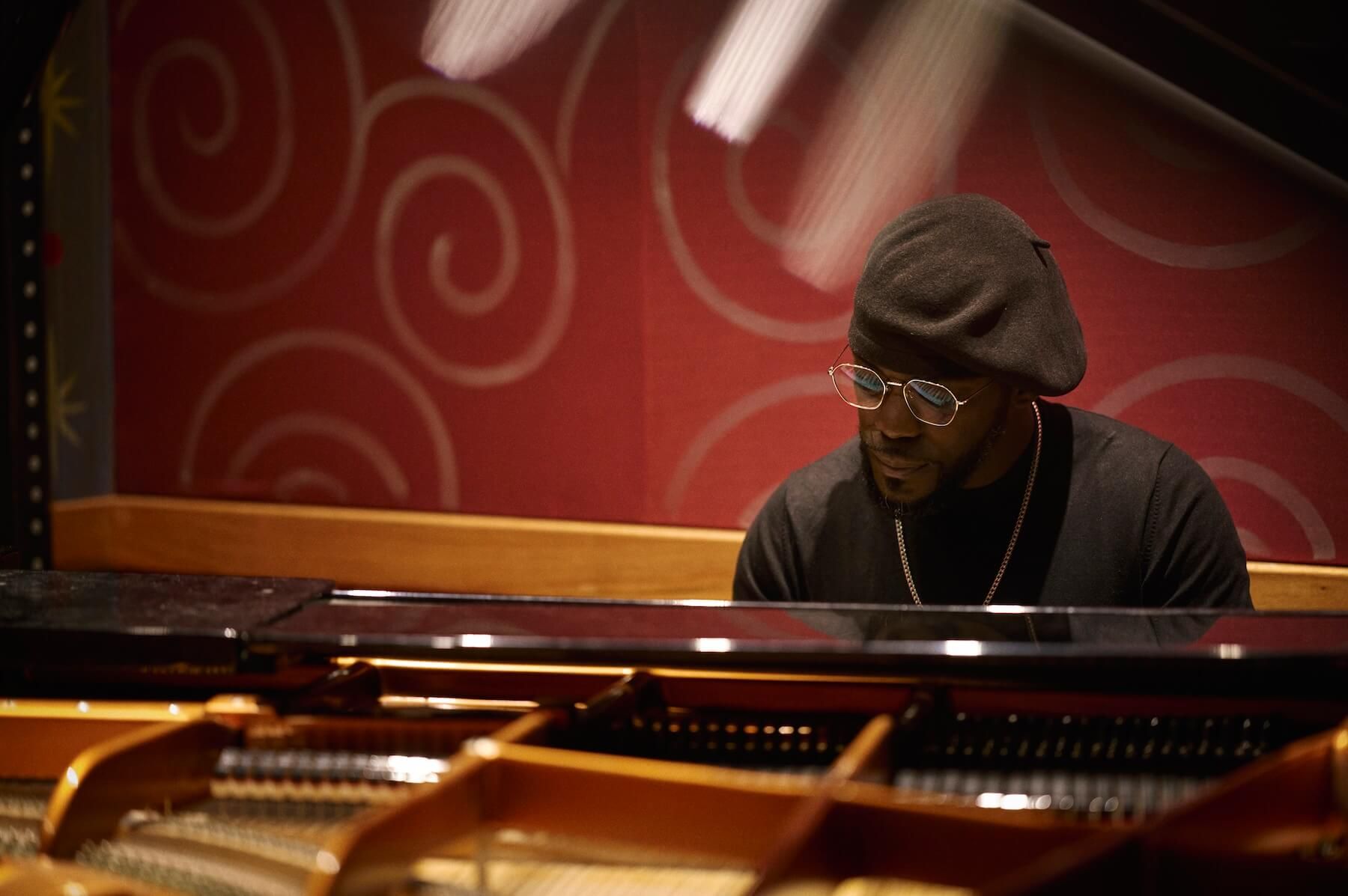Will Wells
On Purpose: Will Wells
Living in Purpose, Making Room for More Magic
Will Wells on the second movement of his career and the intermission that’s made it so meaningful
Written by Lisa Battles
Following his studies in film scoring, music production and engineering at Berklee College of Music, Will Wells established a relatively astonishing list of credits over a decade.
He served as the electronic music producer for “Hamilton.” He was the executive producer and co-writer for Cynthia Erivo’s debut album, and Anthony Ramos’ first EP and subsequent first two full albums. He’s music directed the Heisman Trophy ceremony live broadcasts for years and composed its first theme song. He’s also held many musical direction, performance and production roles touring with artists such as LMFAO, Nikki Yanofsky, Imagine Dragons and Logic. These highlights scratch the surface.
Then Wells took a long beat. From August 2022 to the following summer, he stepped away for an intermission that set up the second movement of his career, now underway and progressing beautifully. While there are times when the pace is as rigorous as ever, he’s established a more deliberate dynamic and tone – fully living in his purpose and bringing more thought and intention to every moment.
Wells recently shared insights from then to now in a talk that followed eight days of nearly nonstop work. He’d been in the studio for a yet-to-be-announced album, separately reviving another exciting collaboration with Ramos, and directing music for the 2024 Heisman Trophy Ceremony – all during unexpected and emotional circumstances impacting him and his family. He says the demands of the week reminded him of how his life used to be and also revealed how his mindset shift prepared him for things he never expected.
“What I can say with every fiber of my being is that it was 100 percent worth it,” Wells says. “ […] There’s a moment in the second movement of ‘Karelia Suite [Op. 11]’ by Sibelius where the ensemble just holds a note and lets it sit and lets it breathe. You have to wait for it. And then it opens up and swells into the most gorgeous chorale. I am in a place in my life where I’m just letting the notes breathe a little bit more. I’m letting myself breathe a little bit more.”
Enchanted trajectory
It took keen self-awareness and a lot of inward work to get to this place, not to mention a fair amount of courage to pause when he did. Most would agree Wells’ early career seemed almost charmed by a series of fortunate events.
Within one week of moving to LA after graduating college, Wells landed a job working for Alex Lacamoire as a music department assistant on “Bring It On: The Musical” at the Ahmanson Theatre. His work on that production introduced him to writer and actor Lin-Manuel Miranda and choreographer Andy Blankenbuehler – and ultimately the opportunity to work on “Hamilton.”
“It felt like an enchanted trajectory,” Wells says. “Imagine that, literally within a week after arriving in Los Angeles, these are the people I was so fortunate to be in a room with day after day, which led to some incredible opportunities later in life.”
More opportunities opened while working for and being mentored by Richard Gibbs at Woodshed Recording, where he forged working relationships with some of the world’s most celebrated artists. Those connections often led to touring gigs, songwriting collaborations and production projects.
Meanwhile, having made a fast friend and collaborator in Ramos during their work on “Hamilton,” Wells executive produced the artist’s first EP and two subsequent albums. He also co-produced the highly acclaimed song, “Stand Up,” performed by Cynthia Erivo in her leading role in “Harriet,” the 2019 biographical film about Harriet Tubman. That same year, former ESPN Vice President of Production Kate Jackson (now Netflix Director of Sports) extended the opportunity to compose the first-ever theme music for the Heisman Trophy Presentation, which he seized and directed live with a flourish. He then executive produced Erivo’s debut album, “Ch. 1 Vs. 1,” released in 2021.
While the successes kept coming, Wells’ finely tuned ear eventually turned inward to notice something was off.
Following the feeling
The Eureka moment came when he was en route to direct music for the 2021 ESPN Sports Humanitarian Awards, he says. Wells called his mother in tears and said he missed his friends and family.
“The irony being that my band was some of my closest friends, and they were all flown out to perform for this ceremony,” Wells says. He adds that when these types of performances ended, allowing everyone time to relax, he’d skip socializing and head back to the studio to write more music.
“Leading up to some of these really incredible and special moments is that my internal dialogue would be saying ‘I have the Heisman ceremony on Saturday. I can’t wait for Sunday.’ You know, what a profound way to disrespect the beauty that is that moment. That I get to contribute music to a night that will be so important not just for the finalist who wins but for all the people around him,” Wells says. “I want to be there. I want to feel that energy and that celebration, as well. I don’t want to be drained. I want to be fully there. I want the ensemble I am so fortunate to have committing time to performing with me to feel that from the top down: I am excited about what we’re about to do, and that I honor these gifts that we have been blessed with.”
Wells adds that he equates not being present in that way to “abusing his blessing” and in some regards was “teetering on abuse and self-abuse” for the latter part of those first 10 years of work.
“That was really the catalyst for taking a moment, taking an intermission, to think about my intentions for every single thing I did next,” Wells says. “There is always room for magic, but [I realized] if I can be intentional about what I accept, what I don’t accept, what the sacrifice is, it would help me understand what is and what is not worth it.”
Stating his purpose
Wells says he immediately paid more attention to his mental and physical health, including starting therapy. Another first step was to call and book a meeting with a mentor, renowned organizational consultant Pat Richie of The Table Group, a former longtime chaplain to the San Francisco 49ers.
“He is just an incredible thinker and leader. The first question he asked me while in his backyard in Houston was, ‘So Will, what’s your purpose?’ And I was like, ‘Oh, that’s where we’re starting? That’s a huge question!’” Wells says.
The work to arrive at a clear purpose statement called upon him to inventory his life highlights and consider when he felt most alive and satisfied. Wells recalls several:
On creating an impromptu string arrangement of the Heisman Trophy theme’s second movement: “I will never forget at that moment, I thought ‘This is it!’
On co-producing Erivo on “Stand Up”: “The wave of energy that we shared while making that record, was so palpable, it was almost tangible. I remember putting everything I had in that moment into bringing that record to completion with our collaborators.”
On his time with students at Berklee: “There were some really incredible moments with the students when I thought, ‘Okay, I understand why people dedicate their life to this work.’”
On approaching Ramos to collaborate back in 2015: “Every time he would sing that simple line in ‘Hamilton,’ … ‘Raise a glass to freedom, something they can never take away!’ there was something so honest about it.”
Wells found that honesty was the common thread between these moments. It’s a quality he’s tuned to receive, what most strongly resonates within him and ignites his collaborative talents to yield the most satisfying results.
His purpose statement?
Amplifying honest voices and touching the soul.
Honoring the energy
To stay true to his purpose, Wells frequently asks himself a favorite question he learned in therapy: “How can you honor yourself right now?”
That can mean deciding whether to continue spending time with someone or simply acknowledging he’s tired and catching some sleep instead of staying up three more hours to finish a project. This particular week it meant going to dinner after the Heisman Trophy broadcast and enjoying quality time with the friend who initially gave him that opportunity. It also meant being present with his family at a difficult time, even while writing some music in the quiet moments.
“This has all been patience plus lessons and an even greater amount of faith, and I believe it’s faith that is the biggest and most important ingredient here. No matter what anybody believes, this is [important] for everyone,” Wells says. “It’s that thing that can’t quite be harnessed. There’s an intangibility to it, and you need it. It’s that belief that you are doing all of this for a reason, and it will lead somewhere. […] It’s been important to have that faith that it is all leading me in the direction that I am supposed to go and that all of these things are ultimately allowing me to live in and act out my purpose.”
Wells is incredibly excited about a new adventure with Ramos – a project they recently revived since its inception in 2018.
“We have been working on a musical, and it feels like one of the most important – if not the most important – things I have ever done, musically and just all around. What I have noticed is, again, I have paid attention to how I feel as I am doing it. It feels profoundly different from anything I have ever done. As we sometimes say, ‘This one feels different.’ […] This one checks every box for ‘Yes, this is something that is important to me to put my energy into because of how I feel while I do it.’”
Resonating notes
Wells offers a thought to anyone on a creative journey: “Pay attention to how you feel and don’t be afraid to check in. Your instincts are powerful. A lot of times we condition ourselves to use logic or reason over those instincts. I just encourage people to not forget the magic of those instincts because oftentimes, great things happen when people follow those instincts.”
The Three440 Artist Story Series takes you beyond the spotlight and into the real lives of Yamaha Performing Artists. Each story is a window into the creative process, pivotal moments, setbacks and victories that define an artist’s path.
STAY IN TOUCH! SIGN UP FOR THREE440 STORIES
Three440™ is a trademark of Yamaha Corporation of America.









